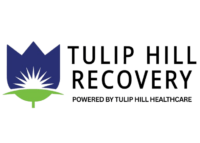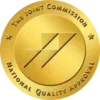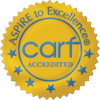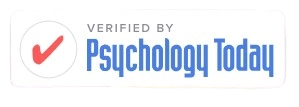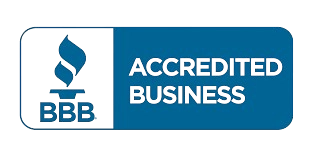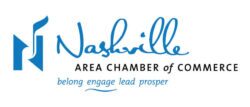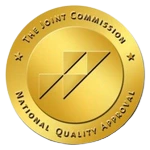Addiction Treatment Therapies in Murfreesboro, TN
A lot of people think rehab for alcohol and drug use is a one-size-fits-all kind of thing—that you go away for a while, get “fixed,” and that’s that.
The truth is, addiction recovery isn’t a straight line, and it definitely isn’t the same for everyone.
What works for one person might not work for someone else, and that’s exactly why personalized care matters so much.
At Tulip Hill Recovery, we offer a range of addiction treatment therapies in Murfreesboro, TN, designed to meet you where you are.
Whether you’re dealing with addiction to alcohol, fentanyl, meth, or prescription drugs like Xanax, we use evidence-based methods to help you heal—physically, mentally, and emotionally.
Our goal is to help you not just get sober from a substance use disorder but stay that way in a way that feels sustainable and empowering.
If you’re in the Nashville area or nearby counties like Davidson, Robertson, Sumner, Wilson, Rutherford, Williamson, or Cheatham, you should also know about our sister facility, Living Again Detox.
It’s located even closer to those regions and offers a supportive place to begin your recovery journey. Whether you start with detox at Living Again or jump into outpatient care with us at Tulip Hill, you’ll be in good hands.
What is Addiction Treatment Therapy?
Addiction treatment therapy is more than just talking to a therapist—it’s a structured, intentional process designed to help you understand your addiction, uncover the reasons behind it, and learn healthier ways to cope.
It’s one of the most important parts of recovery because it addresses not just the substance use itself but the emotional and psychological layers that often come with it. It usually begins when someone has gone through detox and their withdrawal symptoms are subsiding.
At Tulip Hill Recovery, we use a variety of addiction treatment therapies to support healing from the inside out.
Everyone’s experience with addiction is different, so we offer different tools to meet different needs. From traditional talk therapies to experiential and complementary approaches, we create a personalized plan that helps you build a more resilient version of yourself.
Types of Addiction Therapies Offered at Tulip Hill Recovery
At Tulip Hill Recovery, our approach is rooted in both evidence-based and holistic addiction treatment methods.
Here’s a closer look at the types of addiction therapies we offer in Murfreesboro:
Cognitive-Behavioral Therapy
Cognitive behavioral therapy is the most widely used—and most effective—psychological treatment for addiction and a lot of other mental disorders and behaviors related to them.
You work with a mental health professional, and CBT helps you see the connection between your thoughts, emotions, and behaviors. According to the American Psychiatric Association and other mental health services organizations, once you understand how those patterns work, you can start changing them for the better.
Whether you’re struggling with addiction, anxiety, other mental health conditions, or both, CBT teaches you practical tools to manage triggers and stay grounded. It’s especially helpful for people in the early stages of recovery when risk factors for relapse can be high.
If you’re searching for cognitive behavioral therapy in Nashville, TN, Tulip Hill Recovery is just a short drive away in Murfreesboro.
Dialectical Behavior Therapy (DBT)
DBT was first developed for those with borderline personality disorder. Now, DBT has become a go-to therapy for drug abuse and addiction, especially when emotional regulation is a challenge.
At Tulip Hill, our clinicians use dialectical behavior therapy for addiction to help you build healthy coping skills, manage any cravings, and reduce the risk of relapse.
For those in the surrounding area looking for DBT therapy in Nashville, we provide access and compassionate care.
Group Therapy
Group therapy gives you a space to share your struggles, hear from others, and build a sense of community.
Through guided discussions with a therapist and your peers, you’ll practice communication, accountability, and support—skills that are vital for recovery and life beyond treatment.
Peer support is one of the most powerful addiction treatment methods, and many people find that group sessions are where they grow the most.
Group therapy may start in inpatient or outpatient treatment, and you can continue the concept of peer support indefinitely in groups like Alcoholics Anonymous or Narcotics Anonymous.
Narrative Therapy
Narrative therapy helps you take a step back and look at your life from a different perspective. It invites you to explore your past, reframe your experiences, and reclaim your story.
Among substance use therapies, this one encourages emotional growth, builds resilience, and supports long-term recovery by helping you separate your identity from your addiction.
Complementary Therapy
Not every form of healing looks the same—and that’s a good thing.
Complementary therapies offer a more holistic take on therapy for drug and alcohol use disorders, helping you connect with your mind and body in new ways.
At Tulip Hill, we offer yoga, meditation, acupuncture, massage, and nutrition support as part of your treatment.
These practices aren’t “extras.” They’re essential tools in a comprehensive treatment plan that help reduce stress, improve well-being, and give you healthy habits to carry forward.
Related Blog Resources
At Tulip Hill Recovery, we believe that education is a powerful tool in recovery. To help you better understand the effects of addiction and the path to healing, we’ve created several in-depth resources you can explore:
Frequently Asked Questions about Therapy for Addiction
The right level of care depends on your individual situation and needs.
-
If you require medical supervision for withdrawal, our medically supervised detox is the safest first step.
-
If you need structured, daily support but don’t need 24/7 care, PHP is a good choice — offering intensive therapy during the day without overnight stay.
-
If you need flexibility to balance work, school, or family commitments while getting treatment, IOP provides several sessions per week (often evenings or days) with a focus on relapse prevention, therapy, and peer support.
Yes — Tulip Hill works with most major insurance providers across Tennessee. We offer a free, confidential insurance verification to help you determine your coverage and understand any potential out-of-pocket costs.
If insurance doesn’t cover everything, Tulip Hill offers private pay options and financing/payment plans to help make care accessible/
Families are strongly encouraged to participate. We provide family therapy sessions and education to help loved ones understand addiction, improve communication, rebuild trust, and support long-term recovery.
Tulip Hill provides a comprehensive, holistic approach including:
- Individual therapy (e.g., Cognitive Behavioral Therapy, Dialectical Behavior Therapy) Tulip Hill Recovery
- Group therapy for peer support and shared experiences Tulip Hill Recovery
- Family therapy to rebuild relationships and heal family dynamics Tulip Hill Recovery
- Trauma-informed care (including EMDR therapy for trauma/PTSD) Tulip Hill Recovery
- Holistic wellness supports, such as mindfulness, meditation, yoga, nutrition counseling, and experiential activities to support emotional and physical health. Tulip Hill Recovery
Start Your Journey to Healing Today

Call or message us

Free assessment

Insurance check

Choose a start date
 | Medically Reviewed By: Board-Certified Psychiatrist and Addictionologist |
 | Clinically Reviewed By: Board Certified Clinical Social Worker |
Our Verifications & Affiliations
Yes, Your Insurance Covers Detox and Rehab Treatment.
Get Family Support Now
Supporting Families Through Recovery
We understand addiction affects the whole family. Our comprehensive family program helps rebuild trust and restore relationships.
Weekly Family Therapy Sessions
Educational Workshops
Support Groups
Communication Skills Training
